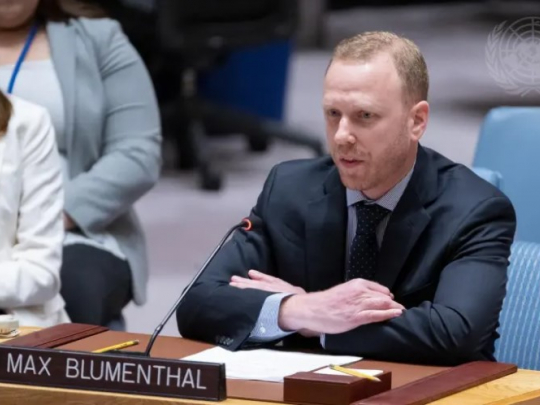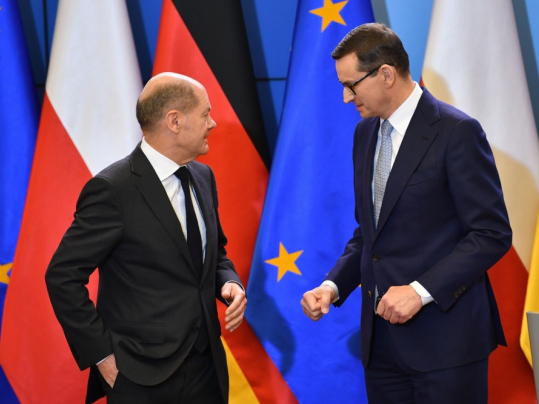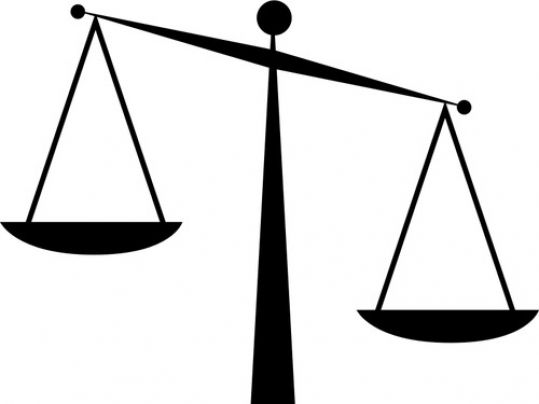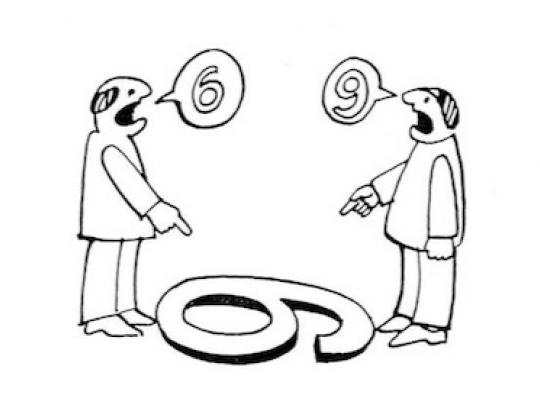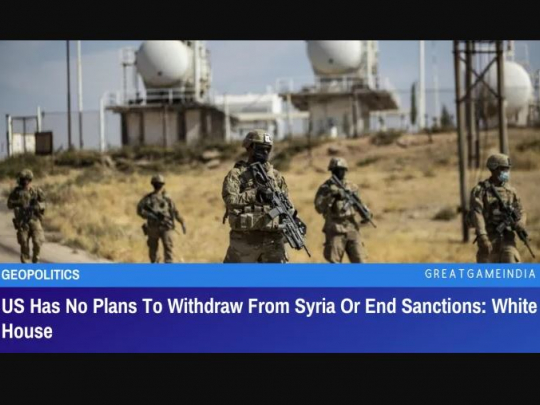Israeli-Lebanese agreement for the exploitation of Mediterranean gas
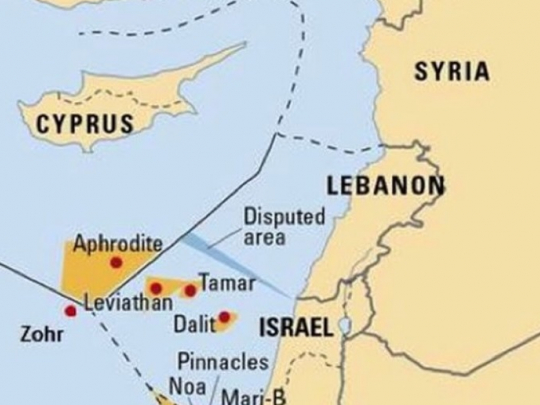
Three quarters of a century after the creation of the State of Israel, its borders are still not defined. So the agreement signed through the United Nations to fix the borders between its maritime domain and that of Lebanon is historic.
The discovery of gas deposits in the eastern Mediterranean in 2011 aroused such appetites that all the states involved had a sudden desire to resolve the differences between them, at least on the subject of their maritime domain. In 2018, Cyprus, Greece, Italy and Israel reached an agreement on the joint construction of a gas pipeline to Europe. Egypt, Palestine, Lebanon, Syria and Turkey were not officially part of this agreement.
Egypt, however, signed a parallel agreement with Israel under which its gas field is exploited by Israel, which exports some of the gas extracted to it via the East Gas company, in which the Egyptian secret service is the majority shareholder.
As Palestine is de facto divided in two, the gas field is offshore and Hamas is responsible for it. A secret agreement was then concluded with Hamas via Qatar. The Israelis exploit the gas, give part of it to Qatar, which pays the Palestinian officials in the Gaza Strip.
In Lebanon, it was the army that was responsible for this file since President Emile Lahoud had kicked out a French military ship that was conducting, without authorization, the exploration of the Lebanese funds. But the intransigence of the army blocked any progress. In 2020, President Michel Aoun resumed the file with more flexibility, imagining a complex but possible agreement.
Syria, at war with Western-backed jihadists, was kept out by all.
The maritime borders of Greece and Turkey have still not been defined. At first glance, Turkey is not concerned by the discovered gas field, but it occupies Northern Cyprus, which is. The Europeans and Israelis have therefore decided to dispense with its agreement.
When President Joe Biden arrived at the White House, he put the Straussians in charge of international issues, particularly energy matters. Amos Hochstein, an Israeli-U.S. liquefied gas specialist who had played the same role for President Barack Obama, was put in charge of these issues. He was a friend of the Straussian Paul Wolfowitz, with whom he defended the oil interests of the dictator Teodoro Obiang Nguema in Equatorial Guinea. He knows the Middle East well since he negotiated, in 2014, the agreement between Israel and Jordan for Tamar offshore gas. He also designed the embargo against Iranian oil. During the Syrian war, he directed US troops to facilitate the truck noria by which the Erdo?an family marketed Daesh oil and he directed the US bombings to destroy the few trucks diverted to Damascus. Hochstein is a very personable person, but serving the US imperialist agenda with the utmost cynicism.
Americans have heard about him in connection with the Biden family scandals: Hochstein, who worked for the then Vice President Joe Biden, was appointed director of Naftogaz, the leading Ukrainian gas company, shortly before Hunter Biden became director of Burisma, the second largest Ukrainian gas company. When President Donald Trump discovered the looting and attempted to investigate, Hochstein covered for his former boss’s son.
The current context of US sanctions against three major hydrocarbon exporters, Iran, Venezuela and the Russian Federation, makes the issue of Mediterranean gas a priority.
The election of the Naftali Bennett-Yair Lapid tandem in Israel is profoundly changing the situation. Indeed, these two political leaders have the ambition to make Israel a state like any other and therefore to break with the imperialist policy of Benjamin Netanyhu and the revisionist Zionists. For his part, Lebanese President Michel Aoun, who during his term of office managed to reconcile with Syria, but failed in all other areas, has set himself the goal of achieving the exploitation of offshore gas before the end of his term of office on October 31.
The agreement reached is original. Knowing that the gas fields do not intersect any of the borders one might require, both the Israeli and Lebanese sides agreed to distinguish between the borders on the sea and those under the sea. This is the only way to ensure that this is the case. But since the Lebanese field encroaches under the sea on the Israeli area on the sea, part of the extracted gas will go to Israel. Where things get tricky is that the two countries are at war and therefore cannot conclude a direct agreement. But that’s no problem! The company operating the Lebanese field will be the French Total. It is this company that will pay a part, not of the gas, but of the profits to Israel. Of course, Total being French, Paris got involved in the story with its own demands. Hence the presence of the French ambassador at the signing.
Israel, being what it is, tried several times to get an unequal deal, if necessary by bribing some of the Lebanese officials. Hezbollah then deployed near an Israeli platform and announced that it could not work until a final agreement was signed. Tel Aviv got the message, halted its bribery efforts and refrained from exploiting its own gas field.
What remained was to sign the agreement, knowing that the two parties refuse to shake hands. A ceremony was devised under the auspices of the United Nations Interim Force in Lebanon (UNIFIL). The Israeli and Lebanese delegations came in turn to sign a document in Naqoura, at the headquarters of UNIFIL, which was transmitted and registered by the UN in New York.
Speaking to the Israelis, their Prime Minister, Yair Lapid, said: "Lebanon has recognized the State of Israel in the agreement on the delimitation of the maritime border between the two countries. This is a political achievement, it is not every day that an enemy state recognizes the State of Israel in a written agreement, and this before the entire international community. This is a somewhat outrageous interpretation, and Sayyed Nasrallah, the Secretary General of Hezbollah, replied: "President Michel Aoun has not signed an international treaty. This is not a recognition of Israel (...) The process that led to the signing of the agreement and the form of this agreement confirm that any talk of normalization is unfounded. (...) The negotiations were indirect and the delegations did not meet.
From the point of view of Lapid, who is trying to decolonize his country -that is, to remove Israel’s colonizing character-, this is a step towards normalization. From the point of view of Nasrallah, who did not require the approval of the Lebanese Parliament for the signing of this commitment, it is not formally a Treaty, but a succession of reciprocal commitments... having the value of a Treaty. In short, each party remains on its position, but is conciliatory with its own principles in the interest of all.
- Source : Thierry Meyssan




